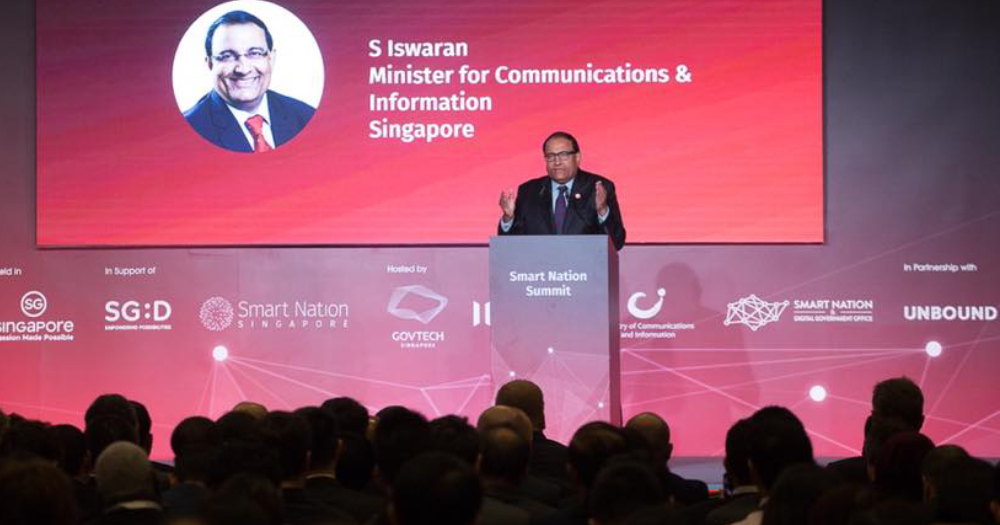Singapore will continue with its plans to roll out 5G infrastructure by the year 2020, said Minister for Communications and Information S. Iswaran.
This is in spite of the uncertainty among local tech stakeholders brought about by the U.S. blacklist on Huawei.
IMDA holding public consultation
Iswaran was responding to a question from Workers' Party member Leon Perera, who asked about the government's plans for Singapore's 5G infrastructure development, in view of the recent U.S. ban on Chinese technology firm Huawei.
The Infocomm Media Development Authority (IMDA)'s public consultation with the industry will be concluding on Tuesday, July 9.
Findings from the consultation will inform IMDA's decision and help them work with the telcos and other stakeholders to commence the installation of a "resilient and secure" 5G infrastructure in a timely manner, said Iswaran.
New Zealand and Australia have banned Huawei from the construction of new telecommunications networks, claiming the company could provide covert access for Chinese intelligence collection, making secure data vulnerable.
Concluded China visit
Iswaran has just ended his five-day trip to China on Saturday, July 6.
It was his first official trip in his current capacity as Minister for Communications and Information.
He visited tech companies to understand the Chinese digital industry landscape, which he said contains cutting edge innovation that ranges from "artificial intelligence to robotics".In addition, he met with the Minister of Industry and Information Technology, Miao Wei, and the head of the Cyberspace Administration of China, Zhuang Rongwen.
With Miao, he shared Singapore's ongoing efforts to roll out 5G networks, and its international engagement to establish common standards for cybersecurity.He also discussed with Zhuang efforts in safeguarding cyberspace.
He said while there are benefits to be reaped from the collection of big data, there is also the need to protect personal data, such as through Personal Data Protection Act (PDPA).
What's the Huawei controversy about?
The U.S. has restricted Huawei from doing business with American companies, accusing the Chinese tech giant of using their tech to spy on people.
But Huawei has repeatedly denied such claims, saying it does not provide data to Beijing, nor has the latter asked Huawei to do so.
The Trump administration has recently doubled down on its accusations, saying the mere possibility for Beijing to influence Huawei is enough justification for its ban on the Chinese firm.
This means the administration might not have to provide conclusive evidence to back up its claims about Huawei -- something Huawei has brought up in the U.S. federal court.
Recent reversal
The U.S. has also pressured other countries to stop using Huawei equipment in their national infrastructure.
Australia and New Zealand have blocked Huawei from their 5G networks.
However, in a move that risks jeopardising relations with the U.S., top mobile operators in the United Kingdom have engaged Huawei in helping to develop their 5G networks.
U.S. President Donald Trump has most recently offered to lift some restrictions on Huawei, saying American companies could resume business with Huawei as long as sales do not pose a "great, national emergency problem".
Top image via S Iswaran's Facebook
If you like what you read, follow us on Facebook, Instagram, Twitter and Telegram to get the latest updates.
